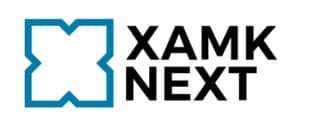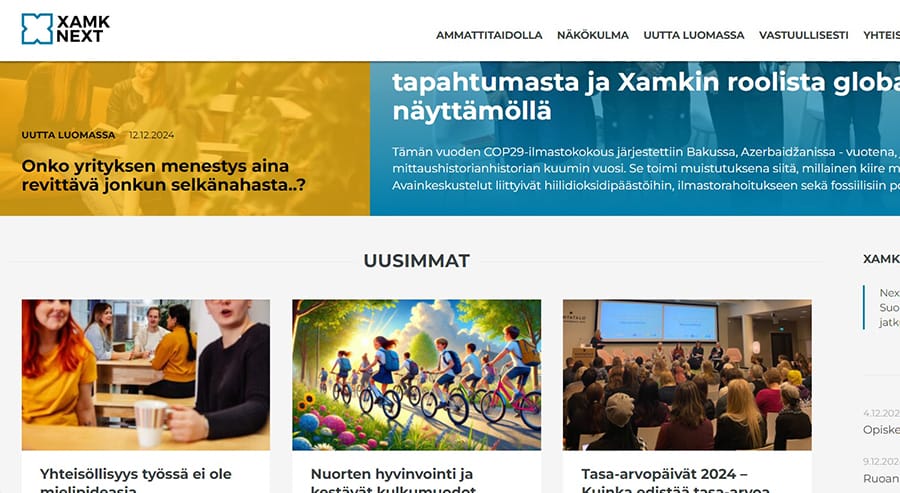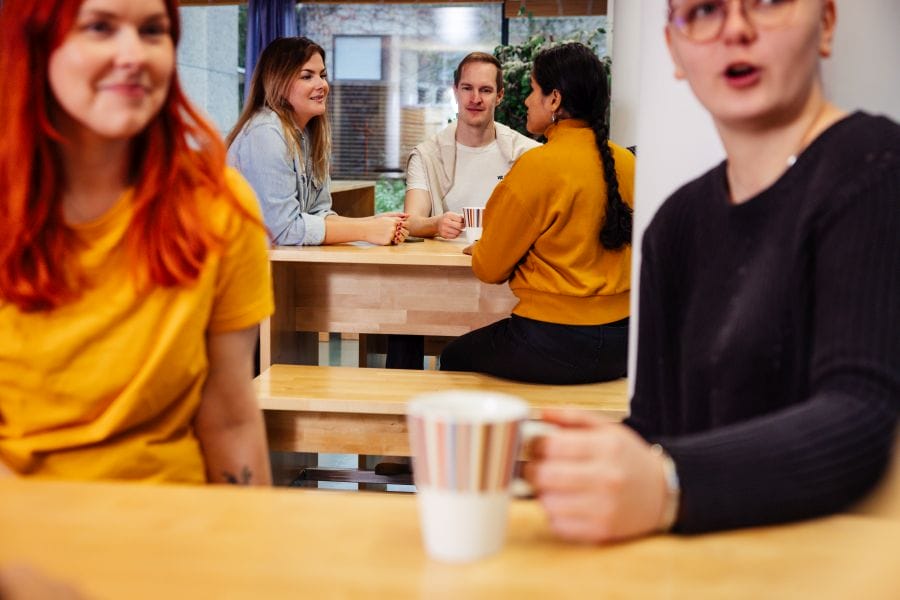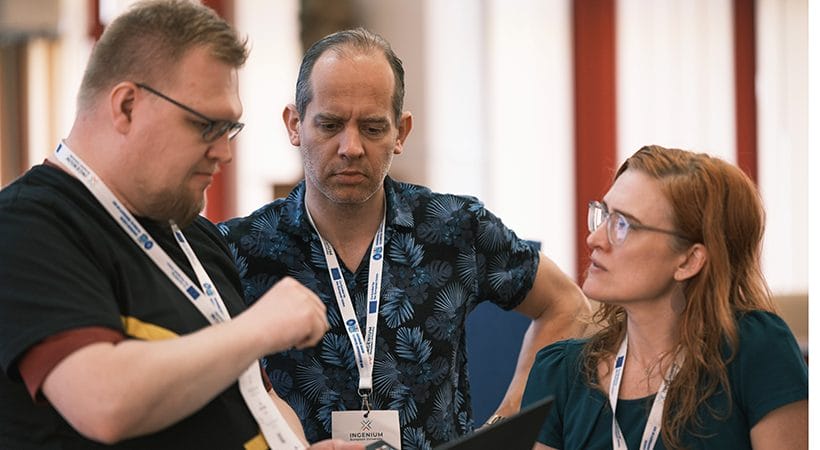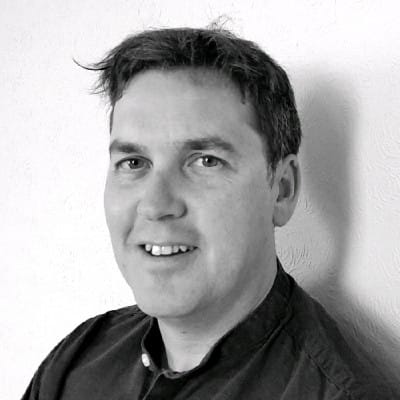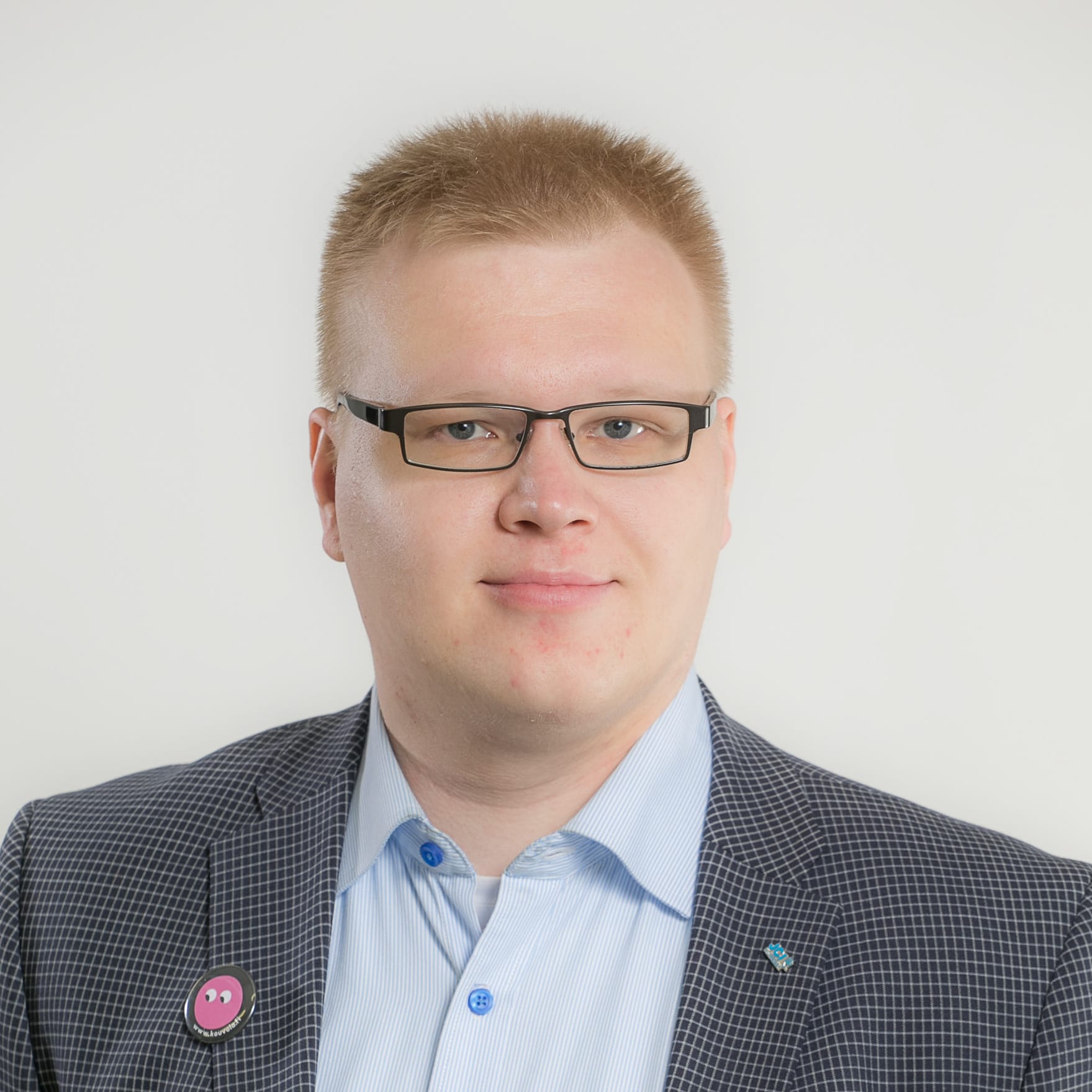Memories of the INGENIUM Staff Academy at Gheorghe Asachi Technical University of Iasi
The European University INGENIUM is a network of ten higher educational institutes, all working together to develop top-level education, joint studies, and research. The aim of the network is to create both formal and informal relationships between individuals and organisations. One tool for that is the INGENIUM Staff Academy, which is arranged twice a year. Each event is hosted by one of the INGEIUM Universities within the 10 Days of INGENIUM framework, this time it was arranged by the Gheorghe Asachi Technical University of Iasi.
Have the Staff Academies succeeded in increasing interaction and relationships between participants and organisations? David O’Hanlon, Lecturer from the Munster Technological University MTU, and Riku Happonen, R&D Project Manager from South-Eastern Finland University of Applied Sciences Xamk, tell their story of two sides from Finland and Ireland collaboration.
David O’Hanlon
Interactive Workshop vs Conference Paper Format – Benefits for Relationship Building
As I reflect back on the INGENIUM Staff Academy a key learning point for me is the power of the interactive workshop format for building working relationships among participants when compared to other formats e.g. conference presentation format. With this interactive, workshop format one gets more of a sense of the values and motivations of presenters.
The staff Academy saw presenters taking themselves outside of their comfort zones. (For example, Mikhail and Riku from Xamk facilitated a workshop with faculty that would traditionally ordinarily be used with students). We see what Mikhail and Riku in action, rather than what they say they act like. We saw how they responded to challenging questions. Through their approach, and how they frame their discussions, you see how they view education and higher education. In comparison to a conference paper, you get to know the presenters much more.
My own workshop was very interactive also. I got to know attendees much more so than if I had presented a paper or lecture for 45 minutes. As teams worked together, I could get a feel for the personalities within the groups. Who were the passionate people, who were the analytical people, who preferred to sit back, who asked challenging questions? I could get a greater sense of who I would be interested in collaborating with, who would challenge me, who might I enjoy working with.
In comparison to a presentation at a conference, the ice is broken between workshop facilitator and attendee– “Oh yeah, I remember you from the workshop!” can work for both parties. It isn’t just the audience member approaching the presenter to start a conversation, after listening to their wisdom at the lectern.
The Wider Context surrounding inter-varsity networking
My second reflection is the power of the “wider context” for helping trust to arise between collaborators between Xamk and MTU. Prior to the Week of INGENIUM, my encounters with Cai and Tiina from Xamk (organizers’ of Staff Academy) were always pleasant and positive. When we bumped into our Finnish counterparts at Bucharest Airport prior to our arrival, the Irish Team and the Finnish team were already well-acquainted through their work on the “Work Packages” of INGENIUM. There was laughing, hugging and a general camaraderie from colleagues in both institutes.
It was against this backdrop that I had an enjoyable discussion on our bus from the airport to the hotel with Riku about Xamk, Finland, and of course football, where I preceded to name all of the Finnish footballers I could recall.
Perhaps without this existing positive relationship between MTU and Xamk, we would be a bit less relaxed and open. So I can see the power of institutes getting together, socializing together and how that can have a “trickle down” effect to other faculty who aren’t involved in work packages.
Getting to know my colleagues from Finland, I can see they have a passion for students to develop and progress. They are keen to help their community and their region to flourish and see the power of active, applied learning. This is why I am excited at possibilities of working together on some projects in the future.
Riku Happonen
Xamk R&D staff as Academy representatives
Our R&D team of Worklife path (ESF+) was selected as the participant of Xamk to May 2024 Ingenium Staff Academy in Iasi, Romania. Our pedagogical innovation is not new concept at all, but it was used in a new context. The context for the oldest pedagogy in the world of storytelling was transformed into students’ tool for practical training hunt in a competitive world we live today.
The process started as we created application in mind that we might get an opportunity to expand the project outside Finland even though it is regionally funded through the Ingenium alliance. The application was written by RDI Principal Lecturer, Dr. Mikhail Nemilentsev who works in the project focusing on research and publication opportunities that Ingenium alliance for example can provide. After sending the application and our concept we got feedback that it scored the highest points not just from our own jury but peer review too.
Adventure at Iasi
The Staff Academy was an interesting and intense experience, and I almost missed the first day morning. That was due that the opening day was held in a campus close to our accommodation like a 10-minute walk. I did not receive info about bus transfer and told my colleague I would walk there after breakfast. Little did I know that the Academy venue was a different campus on the other direction of the city so had to call a taxi from the reception to find the place. Luckily got information about the location and the ride cost only 5€ so I missed only the opening words.
I remember how we started the chat with David from MTU when arrived late at night by transfer bus from airport. Those few minute of informal discussions and getting to know someone new was crucial for learning. It was like first day at school as you only know your friend that walked along but not anyone else. Luckily those few words with Dave on arrival helped to settle in the group as noticed familiar face.
Our set was arranged to be the last of the first day of the Staff Academy. We knew that learning by doing would be a bit different from theoretical lectures and we decided to make it a show to remember. Unfortunately, there were not enough participants to make groups even so I asked some students from the Georghe Asachi Technical University to participate as well instead of just being the overwatch of the event. Some of them seem to enjoy it as we got highlighted at LinkedIn on our show.
Reflecting on the academy it had few practical examples of pedagogical innovations that participants could test while many were more lecture type of study method. David had very interesting model that was new to me for team building. It had both theoretical and practical aspects in a form of group discussions what would be the best move for our “team” in the simulation.
Practice makes perfect
I prefer John Deweys nearly century old “Learning by doing” method better than just a lecture where one passively listens the lecturer monologue. I was happy that in Ingenium there were more practical approaches with discussions instead of passive lectures where one just picks up the smartphone and focuses on it when gets bored.
Good relations with fellow staff members within the alliance helps cross border collaboration whether it is about lecturer exchange, R&D project collaboration or joint degrees. Usually, those relations start from the universal question at the pub: “What do you want to drink?”
